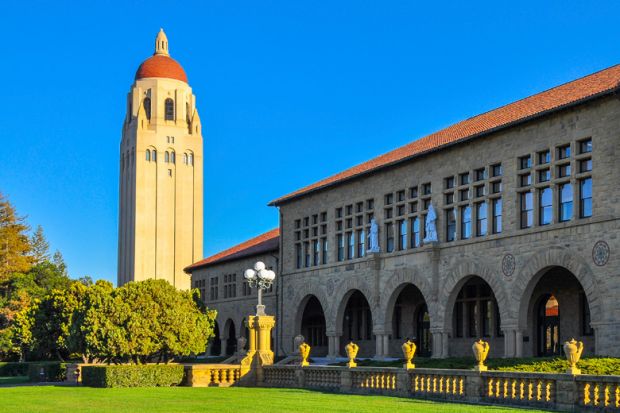Stanford University’s president, Marc Tessier-Lavigne, has agreed to resign after months of internal investigations found the neuroscientist did not correct known errors in his published research articles.
The decision caps nearly a year of internal investigation and campus turmoil sparked by online complaints and a subsequent investigation by the campus student newspaper, The Stanford Daily, that over time raised questions about apparent data manipulation in a dozen research papers involving Professor Tessier-Lavigne.
Announcing the conclusion of the investigation, the chairman of Stanford’s board of trustees, Jerry Yang, described a joint decision to end the Canadian-born president’s seven-year tenure.
“In light of the report and its impact on his ability to lead Stanford, the board decided to accept President Tessier-Lavigne’s resignation and agrees with him that it is in the university’s best interests,” said Mr Yang, a Stanford alumnus and co-founder of the internet services company Yahoo.
In his own statement, Professor Tessier-Lavigne emphasised that the university’s investigation found no evidence that he was guilty of any “fraud or any other unethical conduct related to my research and papers”.
Yet the university’s 95-page investigative report “identified some areas where I should have done better, and I accept the report’s conclusions”, Professor Tessier-Lavigne said. In particular, he said, “I agree that in some instances I should have been more diligent when seeking corrections, and I regret that I was not”.
Professor Tessier-Lavigne insisted he knew nothing of any research data manipulation by anyone else in his lab, but said that he took responsibility for their work.
As a result of the investigation, Professor Tessier-Lavigne will move to retract or issue extensive corrections to at least five journal articles for which he was principal author.
Professor Tessier-Lavigne will leave the Stanford presidency at the end of August and continue in his position as a tenured professor of biology, the trustees said.
Richard Saller, a professor of classics and former dean of humanities and sciences at Stanford, will become the university’s interim president in September.
Stanford is one of the world’s top-ranked research universities, and the investigation took the campus community from initial days of disbelief to a growing realisation that the underlying accusations had merit and were causing widespread distractions.
Both Professor Tessier-Lavigne and Mr Yang listed the highlights of his presidency as including the creation of Stanford’s first new school in 70 years, the School of Sustainability, focused on the global climate crisis.
Though not related to Covid, Professor Tessier-Lavigne’s departure follows a string of resignations by campus leaders across the US as the pandemic has eased. They include Stanford’s high-profile neighbour, the University of California, Berkeley, where Carol Christ, the institution’s first female chancellor, has said she will retire in June 2024.




